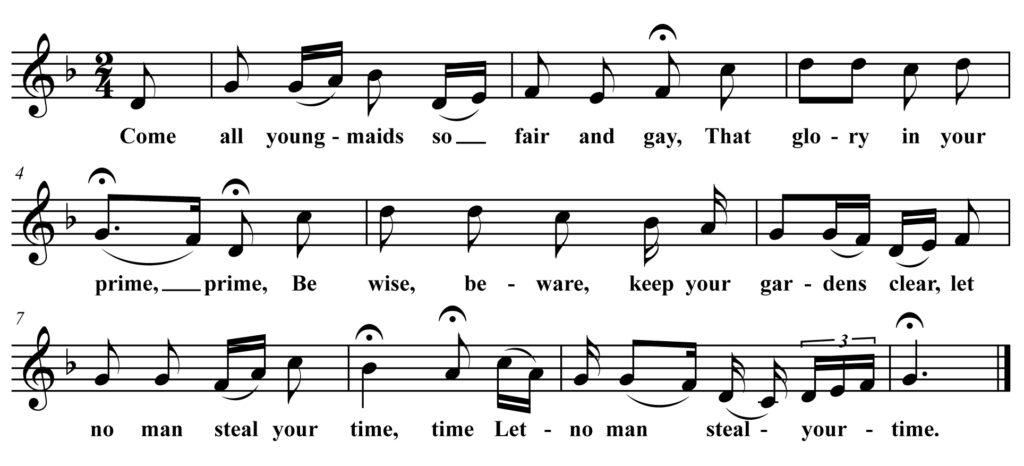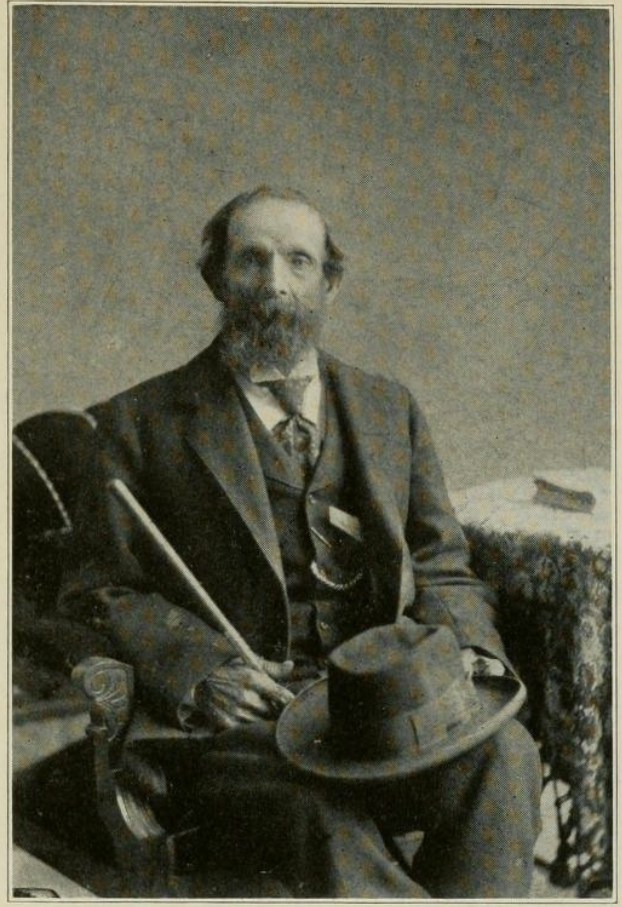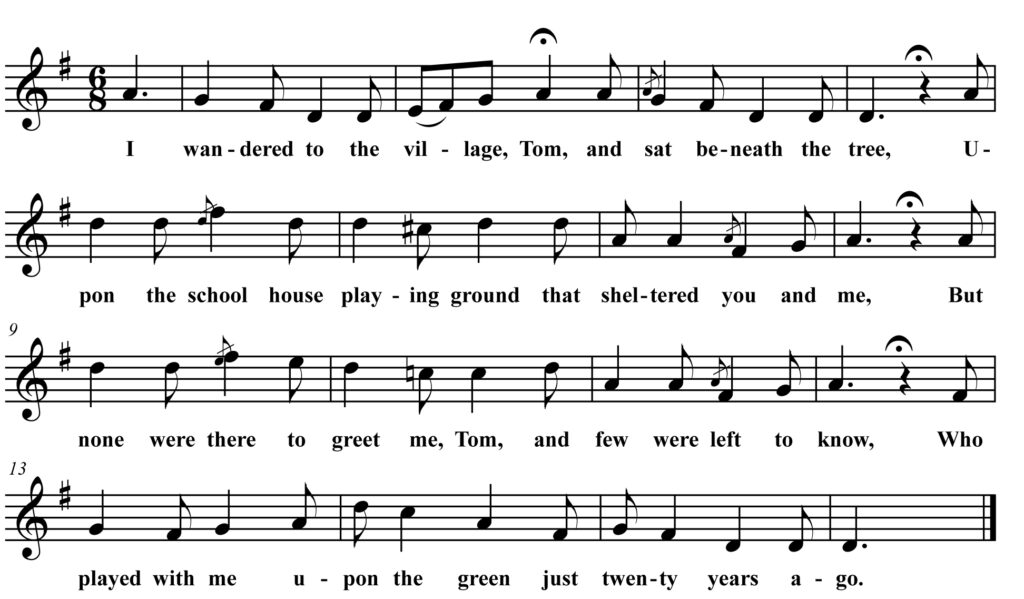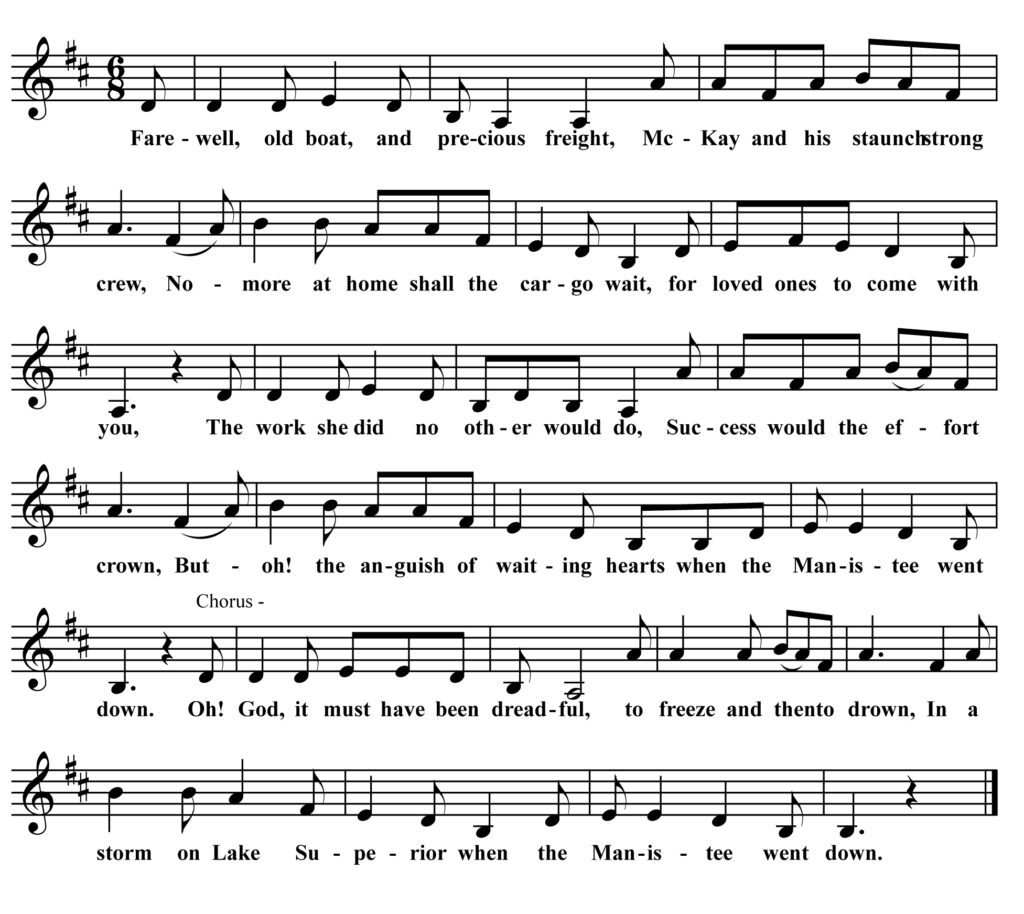Let No Man Steal Your Time

Come all young maids, so fair and gay,
That glory in your prime, [prime,]
Be wise, beware, keep your gardens clear,
Let no man steal your time, [let no man steal your time.]
For when your time it is all gone,
There’ll no man care for you,
And the very place where my time was,
Is spread all over with rue.
The gardener’s son was standing by,
Three flowers he plucked for me,
The pink, the blue, the violet, too,
And the red rosy three.
I’ll cut off the primrose top,
And plant a willow tree,
So that the whole world may plainly see,
How my love slighted me.
Slighted lovers they must live,
Although they live in pain,
For the grass that grows in yon green moor,
In time will rise again.
Roud No.: 3
We have another traditional song this month that appears in the book Jim’s Western Gems compiled by Irish-Minnesotan singer James J. Somers and published in Minneapolis in 1912. Versions of the “Sprig of Thyme” date at least as far back as the 1760s in England and the song came to be sung widely in the English-speaking world. Above, I have married Somers’ text to the melody sung by Dublin singer Patrick Green in 1951 available through the Lomax Digital Archive website.
Somers titles this song text “The Last Song My Father Sang” which is likely a reference to his Irish-born father Martin Somers.
(Most printed versions highlight the double meaning of thyme/time by spelling it “thyme” but Somers’ book spells the word “time.” Somers’ text doesn’t indicate repeated words at the end of the 2nd or 4th lines but I’ve suggested them here to work with Patrick Green’s melody.)



